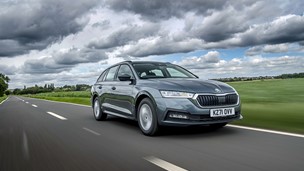Hybrid (and plug-in hybrid) cars traditionally use a powertrain which combines a conventional combustion engine with an electric motor. Among the various hybrid cars on sale now, some use a petrol engine alongside an electric motor, while others use a diesel engine instead.
So is a petrol-electric or diesel-electric hybrid better for you to buy? In this guide, we explore the differences between the two types of powertrain and help you decided which choice is better for you.
Petrol-electric hybrids

Petrol-electric hybrids are far more commonly used for new cars nowadays compared to diesel-run alternatives. The Toyota Prius, the first mass-produced hybrid car sold to the public, uses a petrol-electric powertrain. This and other well-known hybrid models on sale, like the Mitsubishi Outlander PHEV and BMW i8, also use a petrol engine and electric motor together.
Not only are they far more common, petrol-electric hybrids can bring other advantages in terms of costs. After all, petrol engines are commonly cheaper to produce than diesel units. On their own though, the petrol unit tends to be small and won’t necessarily deliver anything special in terms of performance or efficiency, without the aid of the electric motor.
Diesel-electric hybrids

The number of new cars on the market which use a diesel-electric hybrid powertrain is currently small. The examples that do exist, however, do come from some of the biggest car companies on the world.
Current cars available in diesel-electric form include the Mercedes-Benz E-Class in the E300 BlueTEC specification. Other examples are the Peugeot 3008 Hybrid4, DS 5 Hybrid4 and the Volvo V60 plug-in diesel.
The advantages which diesel-electric hybrids can potentially offer include when delivering constant power for long periods of time, suffering less wear while operating at higher efficiency compared to petrol-run equivalents. High torque from diesel engines, mixed with hybrid technology, can offer substantially improved mileage over traditional diesel cars or petrol-hybrids.
Diesel-electric cars can offer massive savings on running costs but they don’t come cheap to buy. For those models that currently offer diesel-electric hybrid specifications, these usually sit near or at the top of their respective ranges.
Which should you choose?
If your heart is set on buying a hybrid car, then which should you choose between petrol-electric or diesel-electric really depends on what details matter most.
If you’re willing to invest the money on a diesel-electric and plan to do a lot of long-distance trips, then the rewards you could reap in terms of saving cash on fuel bills could prove massive.
Justifying their cost becomes harder if you do mostly short trips, however. Petrol engines warm up quicker, and ultimately petrol-electric hybrids are more cost effective and should prove more reliable should you do mostly short journeys. The choices are greater and more varied when it comes to petrol-electric hybrids too, but overtime diesel-electric could close the gap in this regard.
For more specific details on costs, use our vehicle comparison tool to get projections on the long term ownership costs and the depreciation for particular petrol-electric and diesel-electric hybrid cars.




